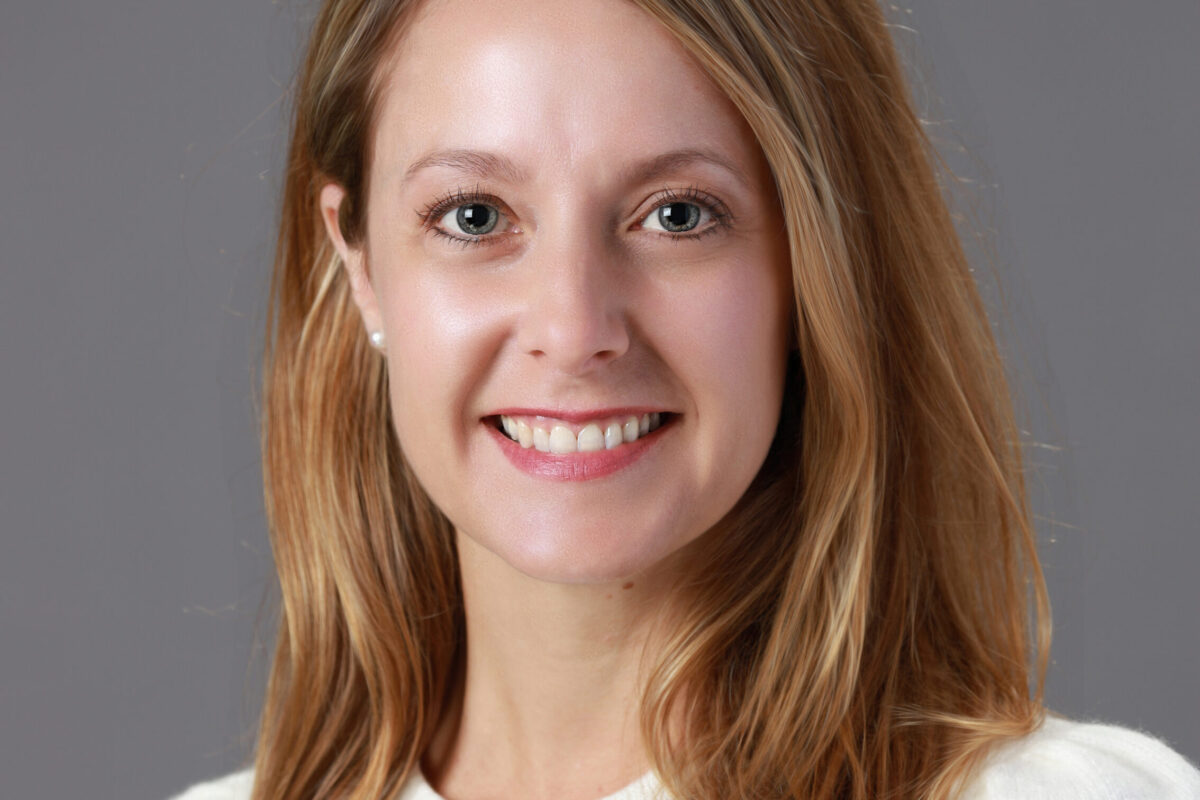
Amy Merrill PhD ’04 has recently received an eight-year grant from the National Institute of Dental and Craniofacial Research.
ASSOCIATE PROFESSOR AMY MERRILL is driven by the desire to impact clinical care outcomes — especially for rare diseases. By studying rare diseases in the face and head, she can learn about the normal process of skeletal development and also shed insights on more common disorders.
The acting associate dean of research recently received an incredibly competitive NIDCR grant, titled the Sustaining Outstanding Achievement in Research (SOAR) Award, that has only been awarded 13 times since 2016. The goal of the award is to provide longer-term support to NIDCR-funded, mid-career investigators who have an outstanding record of research, mentorship and professional service.
Merrill plans to use the eight-year grant to further explore the development of the craniofacial skeleton’s soft tissues, such as tendons and ligaments.
Her research seeks to identify new genes and pathways regulating these tissues, understand their role in common diseases like temporomandibular joint disorders and investigate their impact on rare genetic pediatric diseases.
“I’m thrilled to have this level of freedom to pursue questions that are important for human health,” she says. “We will be employing new technologies and pursuing high-impact questions that are related to skeletal development and disease.”
Studying soft craniofacial tissues
Specifically, Merrill is hoping to learn how ligaments and tendons participate in the repair of common diseases like temporomandibular joint disorders, which disproportionately impact women. “It’s really a women’s health issue that we would like to address and understand which genes are involved in their development and maintenance,” she says. She is using mouse models that point to genes in humans — and collaborating with investigators at UCLA, Baylor University and Cincinnati Children’s Hospital to identify new disease genes.
Rare diseases bring with them questions — and can point to how normal development works. For example, premature fusion of cranial sutures in craniosynostosis, which occurs an estimated 1 in 2,500 births, leads to skull deformity and impaired brain growth. By studying the cells and pathways that build and maintain joint connective tissues, Merrill says her lab will gain a better understanding of how to develop molecular-based strategies to prevent or restore joint damage.
New technologies used in mice will allow Merrill’s team to study craniofacial development in high resolution — on a cellular or even molecular level. Called single cell spatial transcriptomics and other single cell technologies, the tools could reveal new insights, she says. “The increased flexibility and duration of the SOAR grant allows us to leverage new single-cell technologies to transform our understanding of skeletal development and disease.”
And finally, the research will point her work back to humans — especially those with rare diseases. By figuring out the genes that regulate tendon and ligament development in mice and relating them to humans, the goal is eventually to find new treatments. “It’s a disease-first approach,” Merrill says, “going back and forth between human disease and mouse models to pave the way for diagnosis and treatment.”
